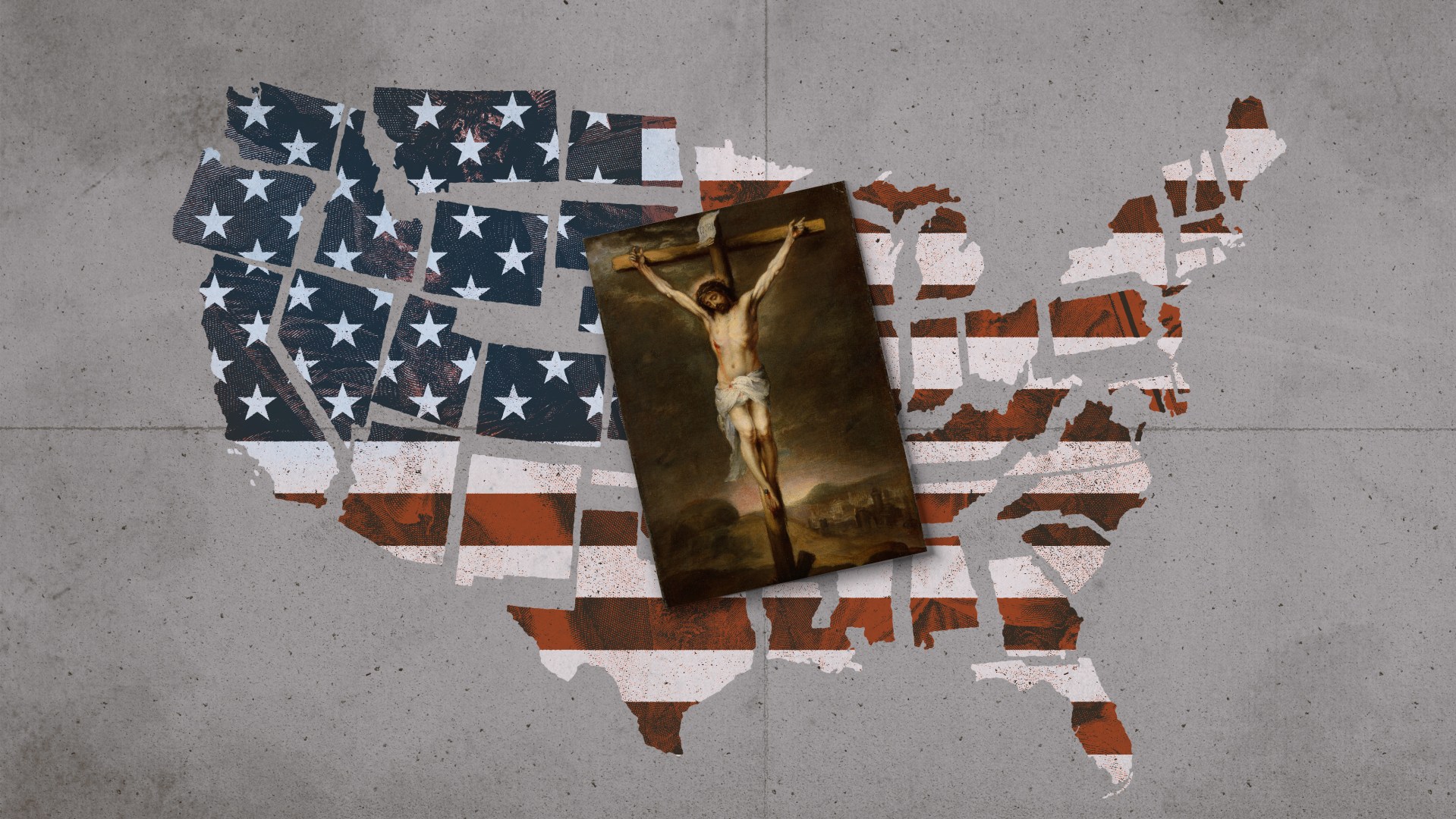Years ago, a Roman Catholic friend lamented to me that he had to go to an evangelical church to hear “good old blood hymns.” He found it inconceivable that a church structured around the real presence of the body and blood of Christ in the Mass would be so reluctant to sing about blood.
He shared, though, that it was getting harder even at evangelical churches to hear bloody music. “Your churches get successful enough where they find it gauche to sing about being washed in blood, so they go with songs more spiritual and abstract,” he said. “But when you find the poor and the hurting evangelicals, that’s where you hear it: power, power, wonder-working power, in the blood of the Lamb.”
He said, “I know you all want to reach people—but it seems to me, when you’re choosing between comfort and blood, too many of you are making the wrong choice.”
I think of that conversation often when I think of the way many of us have grown alarmed by what’s sometimes called Christian nationalism—either in its more common and less virulent strain of “God and country” civil religion, or in the more explicit and terrifying ways we have seen Christian symbols co-opted by demagogic and authoritarian ethnocentric or nationalist movements.
Yes, this degrades the credibility and witness of the church. It grants delegated legitimacy to what the Bible itself denounces, and it turns the church into a captive servant to what can only be called an idol. What we often miss, though, is that what these nationalistic movements trade away is blood.
There’s a reason we see an American church riven apart by resurgent heresy trials. These inquisitions are far less likely to be about essential matters of Christian doctrine—the Trinity or the Virgin Birth or the bodily resurrection—than to be about some talking point of populist politics. In our world, politics is no longer about philosophies of government but about identity (“Whole Foods vs. Walmart”). And in such a world, nationality and politics, even in their smallest trivialities, seem far more real to people than kingdom-of-God realities that Jesus described in terms of a seed underground or yeast working through bread or wind blowing through leaves.
From that point, it’s not a leap to see, in the least harmful case, the United States as being in covenant with God for blessing or cursing the same way Old Testament Israel was. Or to see, in a much darker way, ancient Israel’s militant separation from the other nations as justification for ethnic superiority or permission to ruthlessly eliminate—literally or digitally—those who are the “them” as opposed to the “us.”
Such ideas misinterpret the Bible’s story of redemption and result in a kind of forced biblical illiteracy that, ultimately, leads to a heretical kind of national prosperity gospel. But perhaps even more importantly, these conflations of a nation-state or an ethnic identity or a partisan cause or even a vague “revival of values” damage our understanding of the very core of the gospel: the cross of Jesus Christ.
For example, it’s true that in 2 Chronicles 7, God promised to “heal the land” in which the people repented and prayed and sought his face (v. 14). But that was at the construction of the temple, a temple dedicated with the blood of oxen and sheep, a temple in which God’s presence was focused on a mercy seat. All of this—the blood, the temple, the mercy seat, the blessings, the curses—pointed toward and was fulfilled in Christ, the only mediator between God and humanity.
If we don’t see ourselves as standing before Christ, through his flesh and blood and through his ongoing mediation, we will find something else to fill the void—including some awful movements of “blood and soil” resentment. But if we see ourselves as a temple, purchased with blood and built together by the Spirit, we will crucify our need to “use” Christianity to get us to some other goal—whether noble goals such as family values and national unity or contemptible goals such as nativism or violence. We do not need a Barabbas or a Caesar or a Beast to fight for us. We need a Lamb offered up for us. Nothing else can make us whole again. Nothing but the blood of Jesus.
Russell Moore is Christianity Today’s chair of theology.










